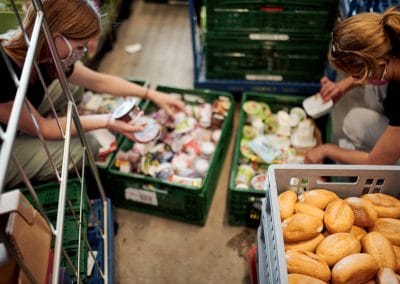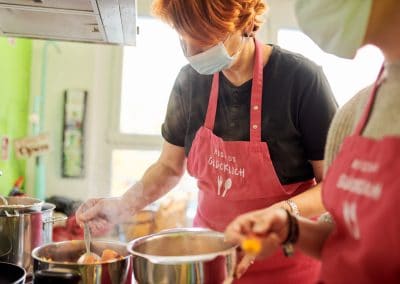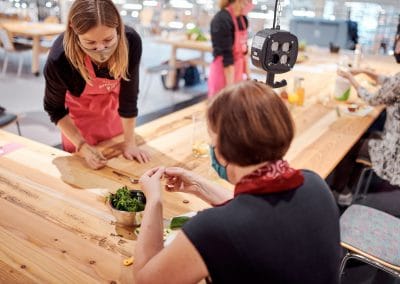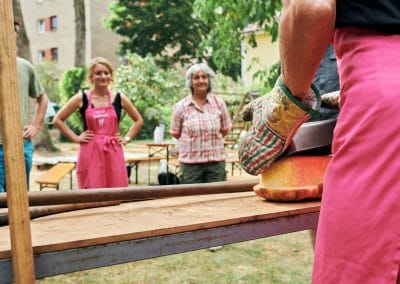Restlos Glücklich
Restlos Glücklich
Our non-profit organization RESTLOS GLÜCKLICH is campaigning for more appreciation of food’s value and sustainable food consumption. We educate people about climate-friendly nutrition through community projects, interactive activities, and individualized workshops. We educate people of all ages to raise awareness about conscientious ways of cooking and handling food. UNSERE KÜCHE: Workshops on climate-friendly and healthy nutrition and education against food waste in disadvantaged neighborhoods in Berlin; Small and simple changes in our kitchen already have a big impact on our health and climate. Look forward to creative cooking workshops and table talks with sustainable ideas on how you can cook healthy and delicious food in your everyday life without much effort
Contact:
hallo@restlos-gluecklich.berlin
Wilhelm-Kabus-Straße 24 10829 Berlin
[ess_grid alias="grid-1"]
Updates für diese Seite an EdiCitNet schicken
Wir freuen uns, wenn du uns Updates für diese Seite per E-Mail schickst.





